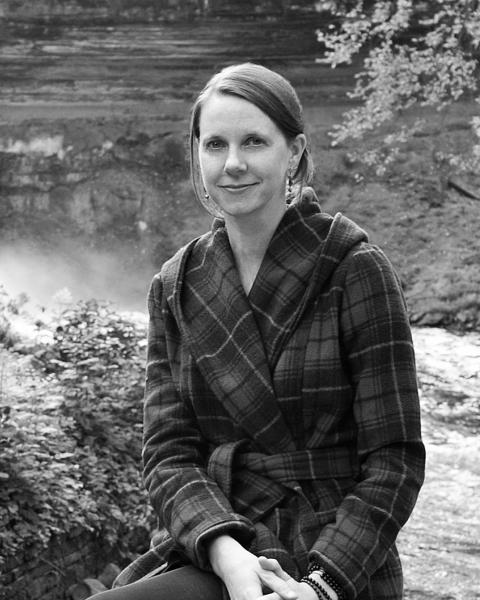 History of Wolves by Emily Fridlund
History of Wolves by Emily FridlundMy rating: 3 of 5 stars
'History of Wolves' is, as you probably guessed, not really a history of wolves. Just in case any there are any biologists getting excited out there!
It is, in fact, a sombre, somewhat compelling, coming-of-age novel. The central protagonist, Linda (or 'freak' or Madeleine), has grown up socially isolated and emotionally undeveloped: living in the last vestiges of a failed commune with people who may, or may not, be her parents. The story enfolds over three time spans, each eleven years apart: Linda as a teenager, then in her twenties, then in her thirties. Reading it as Kindle edition it was sometimes confusing which time period we were falling in, and that was one of the problems of the novel.
It starts very promisingly. Linda virtually lives in the middle of nowhere, so when a family move into the house across the lake from her, they are an immediate object of interest. When the father goes away for work, Linda 'accidentally' bumps into the mother and son: Patra and four-year-old Paul. Quickly, she becomes immersed in their life, acting as babysitter for Paul and companion for Patra. Here, again, Fridlund has set the age differences eleven years apart: a clever mirroring for the overarching plot.
 |
| Emily Fridlund |
calling her 'CEO' from quite a young age, and her father is brusque, although well meaning. Her vague memories of the commune before it split up are her only experiences with children and, as a child herself, she doesn't find Paul endearing or sweet, merely exasperating for the majority of the time. There are, however, some heart warming moments when she feels moved by him. I particularly liked Fridlund's use of body language:
There is a theme running throughout of the difference between action and thought, which is mirrored in the story with her teacher and a classmate. I enjoyed teenage Linda's musings on the subject, and her later musings on what actions she could have done differently to stop the tragedy (don't worry, that's not a spoiler.) "Maybe if I’d been someone else I’d see it differently. But isn’t that the crux of the problem? Wouldn’t we all act differently if we were someone else?" Because, as you will find out if you read the book, there is also a big importance placed on non-action. I'll say no more - no spoilers!
The book becomes more exciting in the middle section, as you will find out. We know from the very first page that Paul dies. This is, of course, a tried and tested way of creating intrigue: you really have to keep reading to find out what happens, even when you suspect (too early on for my liking). Patra's husband returns, and Linda feels shoved to one side. It turns out that Paul's parents are Scientologists, although Linda wouldn't really understand what that means. The tension builds and climaxes in this centre passage, leaving the remaining pages somewhat lacklustre.
There were things I liked about 'History of Wolves', and things that I didn't. I found the plot line with her teacher and another student unsatisfying and unfinished, leaving me feeling as though I had missed something. The same too with Linda as she is as an older woman, both in her twenties and thirties: the barely fleshed out relationships with her boyfriend and roommate respectively. There were certain parallels with the teacher story (Mr Greirson) which were fantastic - but just weren't developed enough. It left me feeling very frustrated.
I think all of the points I have made have probably been covered in other reviews, but this is my tuppence on the subject. As a debut author, Fridlund has a while to grow her plot developing skills, and I hope she does - because the language is beautiful.
On the LongList for The Man Booker Prize (the first one I've read this year), but I don't think it will make it.
Thank you to NetGalley and Grove Atlantic Monthly Press for the opportunity to read this book. It is now on general release.
View all my reviews

No comments:
Post a Comment